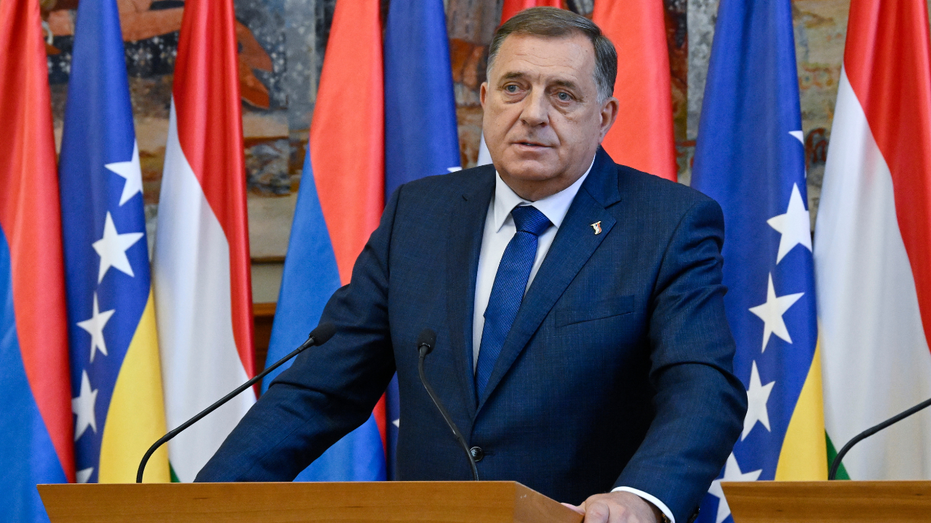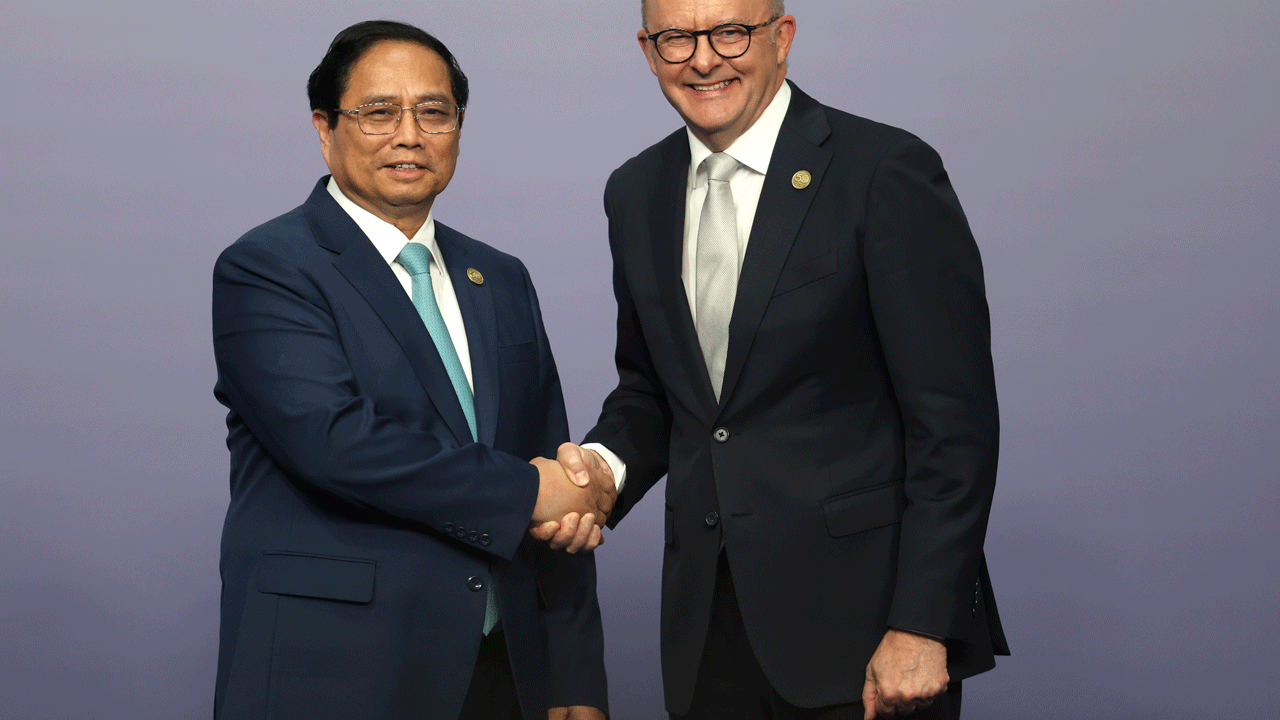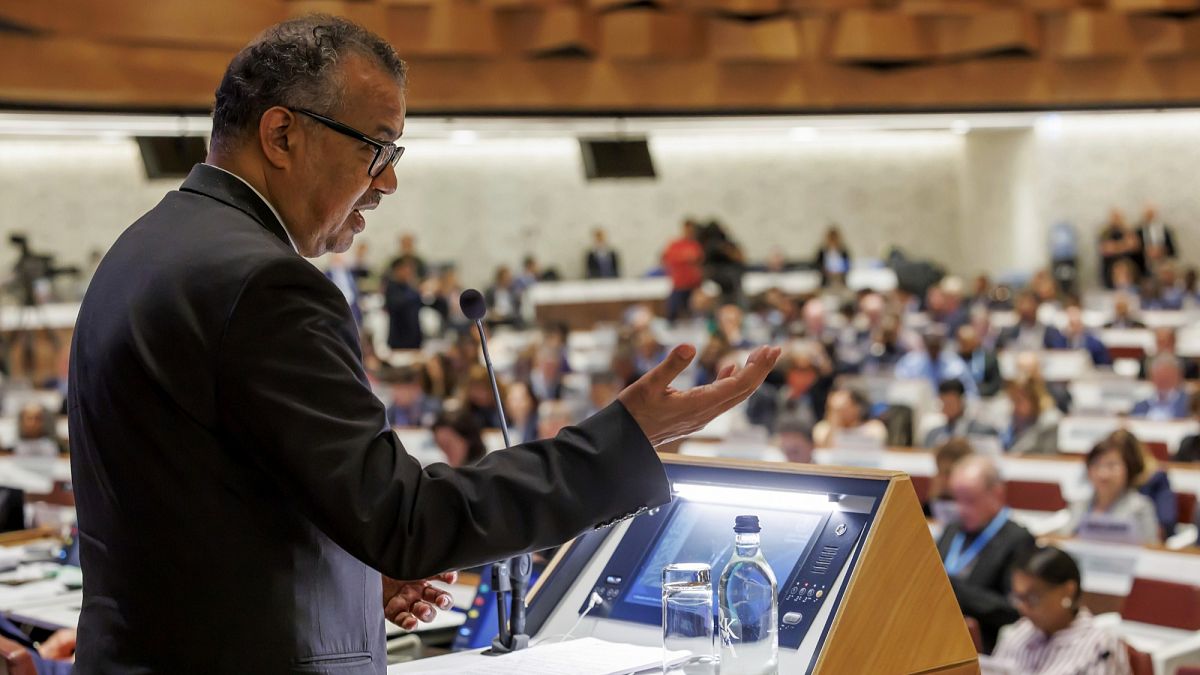Bosnian Serb leader threatens to secede from Bosnia ahead of UN vote on genocide
A planned U.N. vote on establishing an annual day to commemorate the 1995 genocide of more than 8,000 Bosnian Muslims by Bosnian Serbs has sparked political controversy.

The leader of Bosnia's Serb territory reiterated his threat to secede from the Balkan country Wednesday, a day ahead of a planned U.N. vote on establishing an annual day to commemorate the 1995 genocide of more than 8,000 Bosnian Muslims by Bosnian Serbs.
The proposed U.N. resolution sponsored by Germany and Rwanda has sparked protests and a strong lobbying campaign against the measure by the Bosnian Serb president, Milorad Dodik, and the populist president of neighboring Serbia, Aleksandar Vucic.
The two leaders say the resolution would brand all Serbs as genocidal, although the draft does not explicitly mention Serbs as culprits.
THOUSANDS OF BOSNIAN SERBS ATTEND RALLY DENYING GENOCIDE WAS COMMITTED IN SREBRENICA IN 1995
On July 11, 1995, Bosnian Serbs overran a U.N.-protected safe area in Srebrenica. They separated at least 8,000 Muslim Bosniak men and boys from their wives, mothers and sisters and slaughtered them. Those who tried to escape were chased through the woods and over the mountains around the town.
The U.N. General Assembly has scheduled a debate on the resolution on Thursday morning to be followed by a vote in the 193-member world body. Serbs have the support of their allies Russia and China, while the resolution is supported by the U.S. and most other Western states.
Dodik, who is president of Republika Srpska, which comprises about half of Bosnia, said on the social media platform X that the U.N. resolution is being forced on the country by supporters of Muslim Bosniaks and that it will split up the country.
"Bosnia and Herzegovina has reached its end, or to be more precise, it was brought to an end by those who swore to it," Dodik said on X. "All that remains is for us all to make an effort to be good neighbors and to part in peace."
HUNGARY TO OPPOSE UN RESOLUTION COMMEMORATING 1995 GENOCIDE IN BOSNIA, MINISTER SAYS
Dodik has made several such threats in the past to have the Serb-controlled territories secede from Bosnia and join with neighboring Serbia. He and some other Bosnian Serb officials are under U.S. and British sanctions partly for jeopardizing a U.S. peace plan that ended Bosnia's 1992-95 war.
The Srebrenica killings were the bloody culmination of the war, which came after the breakup of Yugoslavia unleashed nationalist passions and territorial ambitions that set Bosnian Serbs against the country’s two other main ethnic populations, Croats and Muslim Bosniaks.
The International Court of Justice, the U.N.’s highest tribunal, determined in 2007 that the acts committed in Srebrenica constituted genocide, and the court’s determination is included in the draft resolution. It was Europe’s first genocide since the Nazi Holocaust in World War II, which killed an estimated 6 million Jews and people from other minorities.
Vucic and his government have been campaigning both at the U.N. and among developing countries to win support for a "no" vote. Approval requires a majority of those voting.
In a massive campaign against the resolution both in Serbia and the Serb-controlled half of Bosnia, billboards and video beams reading "Serbs are not genocidal people" have been displayed on the streets. Serbs in Bosnia and Serbia plan to hoist Serbian flags all over Bosnia and Serbia on Thursday in a sign of support.
Vucic and Dodik, both pro-Russian politicians, also have argued against the resolution by raising the possibility that it will open the door to having to pay war damages if it is adopted. Local analysts say Serb leaders, including Vucic, also fear they could be put on trial for active participation in the Bosnian bloodshed.
The draft resolution condemns "without reservation any denial of the Srebrenica genocide as a historical event." It also "condemns without reservation actions that glorify those convicted of war crimes, crimes against humanity and genocide by international courts, including those responsible for the Srebrenica genocide."
Bosnian Serb wartime political leader Radovan Karadzic and his military commander, Ratko Mladic, were both convicted of genocide in Srebrenica by a special U.N. war crimes tribunal in The Hague, Netherlands. In all, the tribunal and courts in the Balkans have sentenced close to 50 Bosnian Serb wartime officials to lengthy prison terms.
The government of Serbia continues to deny that genocide was committed in Srebrenica, though it calls it a "terrible crime."
Most Serbian and Bosnian Serb officials still celebrate Karadzic and Mladic as national heroes. They continue to downplay or even deny the Srebrenica killings, which has deeply offended relatives of the massacre victims and survivors.
What's Your Reaction?
















